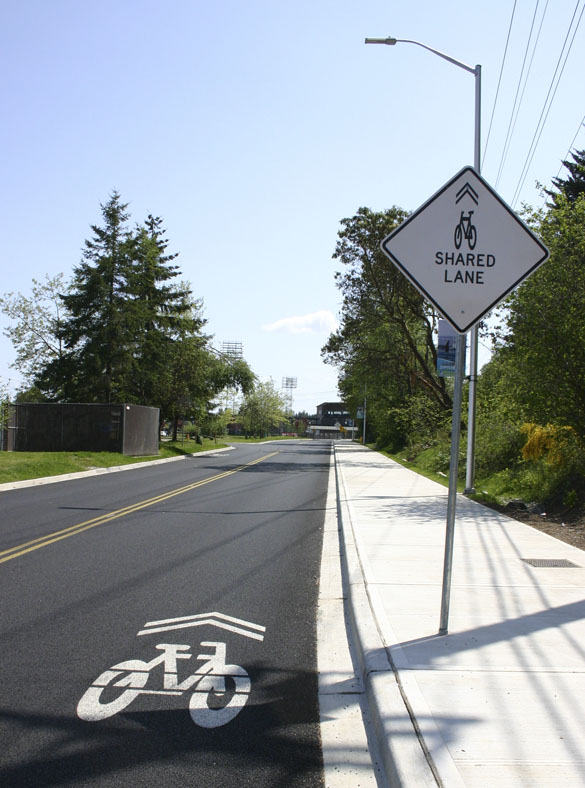EDITOR’S NOTE: Through the end of this year, the Tacoma Daily Index will feature its annual “Year In Review” series, which recaps an important story covered earlier this year in the newspaper according to reader interest on our Web site. Enjoy!
A stormwater infrastructure project near Tacoma’s Cheney Stadium earned environmental honors in May.
Tacoma’s Clay Huntington Way, the north entrance of Cheney Stadium formerly known as Cheyenne Street, was the focus of a low-impact development project that used porous asphalt to reduce the amount of runoff pollution by allowing rainwater to soak into the ground naturally. In addition, a portion of the south parking lot was also upgraded with porous asphalt and landscaping islands. Two rain gardens, low-maintenance plants and more than 100 new trees also help filter rainwater and keep it from carrying polluted runoff downstream. The project, which began in September and was completed in March, aims to help to refill groundwater supplies and improve stormwater quality in Tacoma’s Flett Creek Watershed.
The project also added 10-foot-wide sidewalk and energy-efficient LED streetlights from 19th Street to the north ticket entrance at the ballpark to increase pedestrian safety, widened the roadway to include shared bicycle lane markings, installed bicycle racks at the north ticket entrance, and installed electric vehicle charging stations in the north parking lot. In the end, the Cheney Stadium Sustainable Stormwater Project earned the City of Tacoma a silver certification award from Greenroads, a sustainability rating system for roadway projects that encourages the use of holistic design and construction practices that are above and beyond conventional practice for environmental stewardship and social responsibility.
“By using green infrastructure we are soaking in and filtering rainwater on-site instead of it traveling many miles through pipes and collecting all sorts of pollution,” said city engineer and project manager Jessica Knickerbocker. “Reducing the flow from this site by 72 percent has a huge impact downstream.”
Knickerbocker added that Clay Huntington Way is Tacoma’s first porous asphalt road. She also noted the low-impact development project cost approximately half of what an equivalent traditional stormwater system would cost, and is also projected to be less expensive to maintain.







